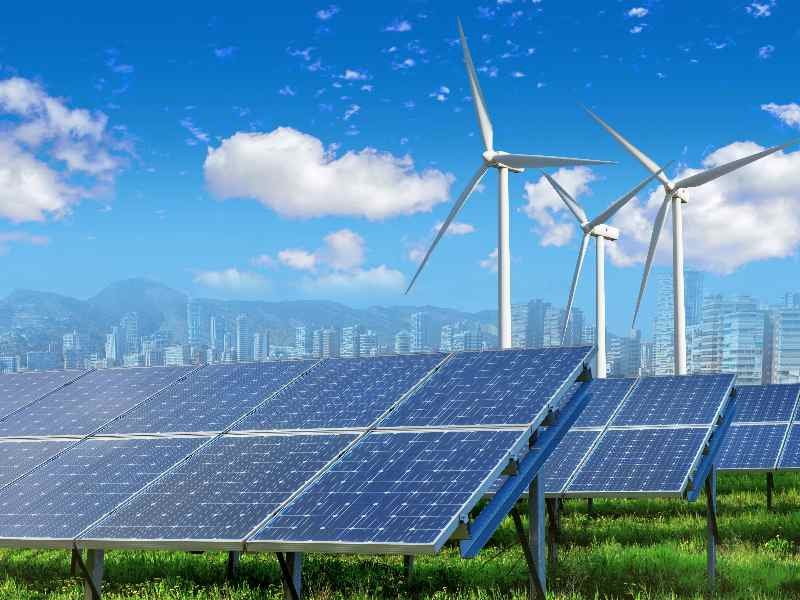In a recent report, the International Energy Agency (IEA) has cautioned that Kenya’s revised policy on procuring electricity from independent power producers (IPPs) specializing in renewable sources hinders new investments and impedes efforts to address the nation’s energy access deficit.
The policy change, which saw the approval of the Renewable Energy Auction Policy (Reap) by the Cabinet last year, marked a departure from the previous Feed-in Tariffs (FiT) system. Under FiT, IPPs were guaranteed a fixed tariff over a specified period, a mechanism introduced in 2008 to encourage investments in Kenya’s renewable energy capacity. This policy succeeded in boosting the country’s electricity generation from 1,113 megawatts in 2008 to over 3,078 megawatts in the last year, as per data from the Energy and Petroleum Regulatory Authority (EPRA).
The shift in policy was prompted by a task force appointed in 2021 by former President Uhuru Kenyatta to address the high cost of electricity for end-consumers. The task force recommended the renegotiation of power purchase agreements (PPAs) with IPPs and aligning new PPAs with a low-cost power development plan.
Under the Reap framework, approved by the Cabinet, the Kenya Power and Lighting Company (KPLC) now has the authority to solicit bids from IPPs, selecting only the most cost-effective options based on financial and technical evaluations.
The IEA expressed concern that the move from the FiT system, which had stimulated numerous solar PV and wind project announcements, coupled with PPA renegotiations, could impede investments in the renewable energy sector.
In its Renewables 2023 report, the Paris-based intergovernmental organization highlighted that Kenya could potentially add up to 2,000 megawatts of renewable energy generation capacity by 2028 if the trajectory of the last decade were maintained and if the new auction scheme was implemented effectively.
The report stated, “Kenya is planning to transition from a system based on feed-in tariffs to an auction scheme. While the initial auctions have yet to be announced, firm pricing structures, coupled with a reliable schedule, would accelerate [renewable energy] additions.”
Renewable energy sources, such as solar, wind, and geothermal, presently contribute over 90 percent of Kenya’s electricity consumed. Despite having a total electricity generation capacity exceeding peak power demand by nearly 1,000 megawatts, approximately 15 million people need more reliable electricity access, with millions more not connected to the national grid. Increased generation could play a pivotal role in closing the country’s energy access gap.
By Delino Gayweh
Serrari Financial Analyst
January 22, 2024
Article, Financial and News Disclaimer
The Value of a Financial Advisor
While this article offers valuable insights, it is essential to recognize that personal finance can be highly complex and unique to each individual. A financial advisor provides professional expertise and personalized guidance to help you make well-informed decisions tailored to your specific circumstances and goals.
Beyond offering knowledge, a financial advisor serves as a trusted partner to help you stay disciplined, avoid common pitfalls, and remain focused on your long-term objectives. Their perspective and experience can complement your own efforts, enhancing your financial well-being and ensuring a more confident approach to managing your finances.
Disclaimer: This article is for informational purposes only and does not constitute financial advice. Readers are encouraged to consult a licensed financial advisor to obtain guidance specific to their financial situation.
Article and News Disclaimer
The information provided on www.serrarigroup.com is for general informational purposes only. While we strive to keep the information up to date and accurate, we make no representations or warranties of any kind, express or implied, about the completeness, accuracy, reliability, suitability, or availability with respect to the website or the information, products, services, or related graphics contained on the website for any purpose. Any reliance you place on such information is therefore strictly at your own risk.
www.serrarigroup.com is not responsible for any errors or omissions, or for the results obtained from the use of this information. All information on the website is provided on an as-is basis, with no guarantee of completeness, accuracy, timeliness, or of the results obtained from the use of this information, and without warranty of any kind, express or implied, including but not limited to warranties of performance, merchantability, and fitness for a particular purpose.
In no event will www.serrarigroup.com be liable to you or anyone else for any decision made or action taken in reliance on the information provided on the website or for any consequential, special, or similar damages, even if advised of the possibility of such damages.
The articles, news, and information presented on www.serrarigroup.com reflect the opinions of the respective authors and contributors and do not necessarily represent the views of the website or its management. Any views or opinions expressed are solely those of the individual authors and do not represent the website's views or opinions as a whole.
The content on www.serrarigroup.com may include links to external websites, which are provided for convenience and informational purposes only. We have no control over the nature, content, and availability of those sites. The inclusion of any links does not necessarily imply a recommendation or endorsement of the views expressed within them.
Every effort is made to keep the website up and running smoothly. However, www.serrarigroup.com takes no responsibility for, and will not be liable for, the website being temporarily unavailable due to technical issues beyond our control.
Please note that laws, regulations, and information can change rapidly, and we advise you to conduct further research and seek professional advice when necessary.
By using www.serrarigroup.com, you agree to this disclaimer and its terms. If you do not agree with this disclaimer, please do not use the website.
www.serrarigroup.com, reserves the right to update, modify, or remove any part of this disclaimer without prior notice. It is your responsibility to review this disclaimer periodically for changes.
Serrari Group 2025
















